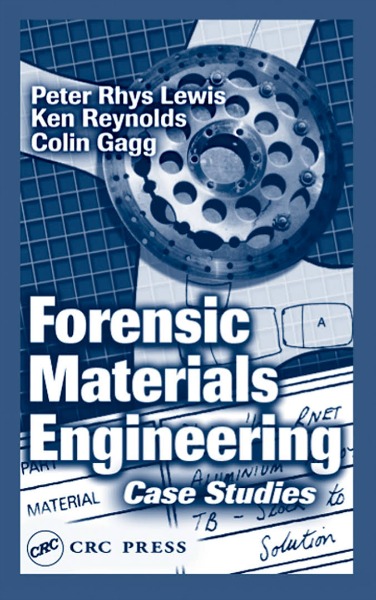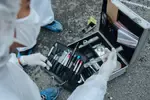Forensic Engineering
Forensic engineering is the application of engineering knowledge and expertise within legal investigations. Such investigations typically relate to the study of materials and components which have failed to operate as intended in such a way as to cause personal injury or structural damage.
Want To Study Forensics/CSI?
What Does A Forensic-Engineer Do?
Dr Peter R Lewis who teaches and consults as a forensic-engineer wrote an excellent article for the website in which he wrote:
I teach and consult as a forensic-engineer, so I thought I would share my enthusiasm for the subject with you.
|
We have many methods in common with forensic scientists, such as microscopy and chemical analysis as well as being able to comment on witness statements and appearing in court to present our evidence. |
|
We investigate accidents where product failure has caused personal injury (such as a car accident), or where there is a design flaw in a product so all have to be recalled. We often use trace evidence to show how a component failed, or to verify the truth of a witness statement just like the forensic scientist uses trace evidence like DNA or fingerprints to establish who was at a crime scene.
Some times we get involved in major disasters, where a bridge suddenly collapses or a train derails killing many people and this leads naturally to cold case research, where we re-analyse an old disaster to show what really happened. We have re-analysed the Tay Bridge disaster from 1879 for example. By examining the superb photographs which were taken at the time, we were able to show that the design of the bridge was totally flawed from the very beginning. But many people still believe that the bridge was blown down by a storm on the night of the disaster, which we think is a very misleading idea.
Dr. Lewis and Dr. Michael Edwards have written an excellent description of modern methods used in forensic- engineering, which you can read in full HERE.
Becoming A Forensic-Engineer
James R Drebelbis, AIA, P.E. shares his experience and insights about the fascinating world of Forensic-Engineering.
Essential Reading
Most books on forensic-engineering focus on civil engineering failures rather than consumer or general mechanical products. Unique both in scope and style, this treatment is built upon case studies of real accidents, broadly focused on consumer products, and dedicated to problem solving through scientific principles.
Each well-illustrated case study includes legal background, reports the case results, and highlights the lessons learned from the case. New materials and applications appear constantly, and with them, new failure modes. This book provides an outstanding opportunity to gain virtual experience through up-to-date facts and feedback from forensic engineering practitioners.
See following link for full details.
Forensic Materials Engineering: Case Studies
Recent Articles
-
All About Forensic Science
Nov 12, 24 03:05 AM
A forensic science website designed to help anybody looking for detailed information and resources. -
The Role of Forensic Evidence in Criminal Defense Cases
Sep 05, 24 03:38 AM
Article exploring five key roles that forensic evidence plays in criminal defense cases -
The Evolving Role of Medical Science in Forensic Investigations
Aug 06, 24 03:35 AM
Insightful article exploring the critical role of medical science in forensic investigations.



New! Comments
Have your say about what you just read! Leave me a comment in the box below.